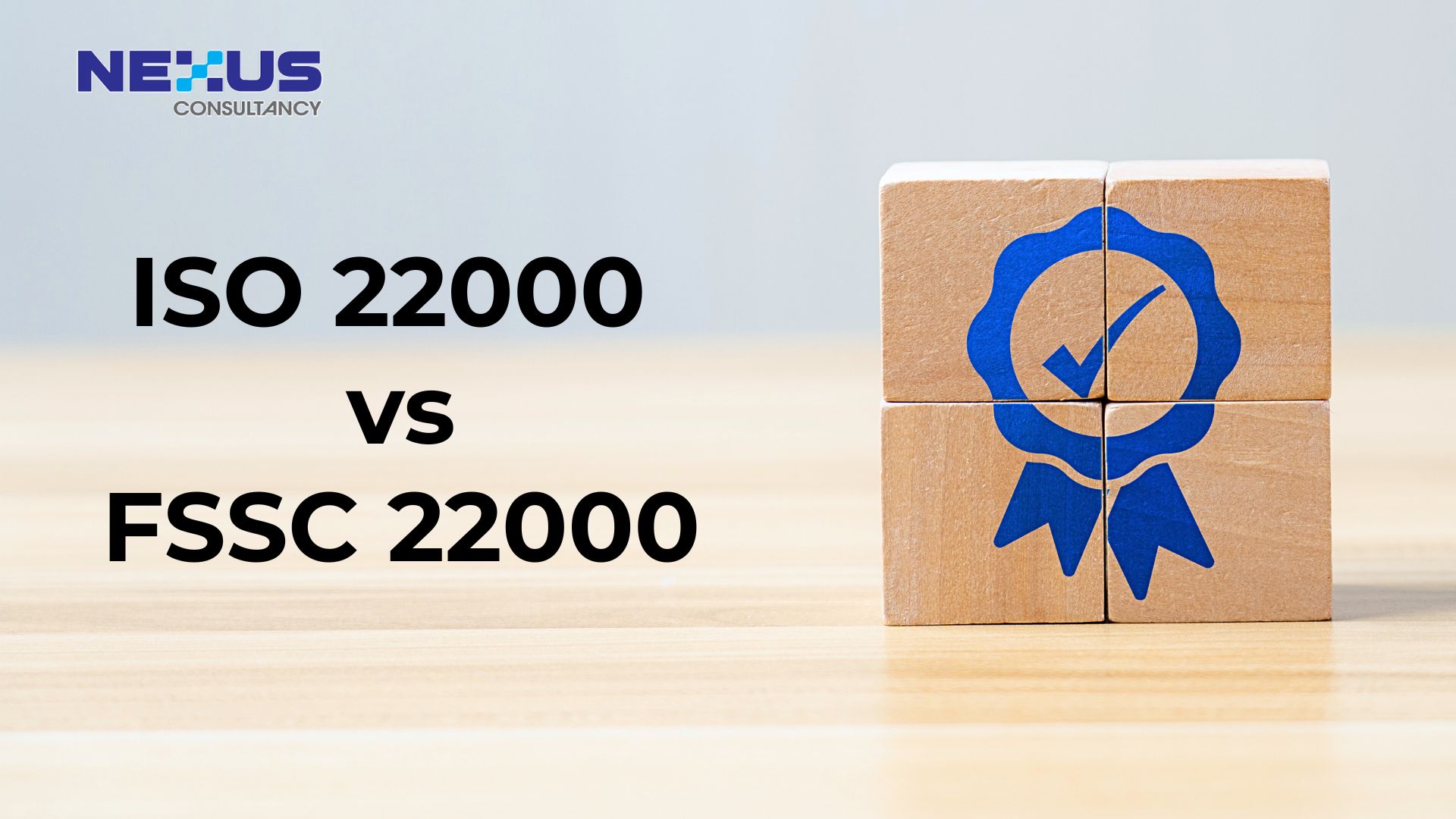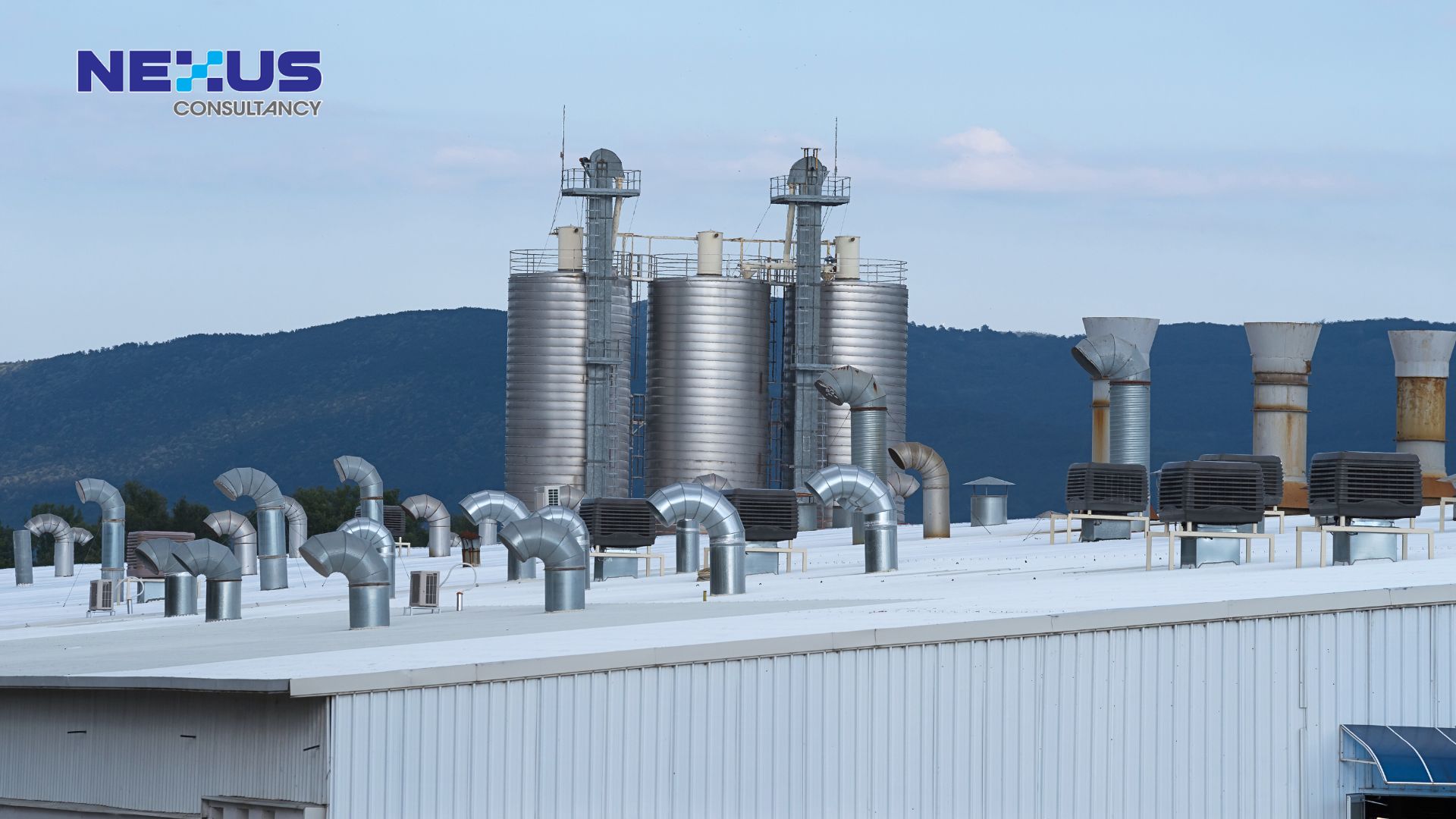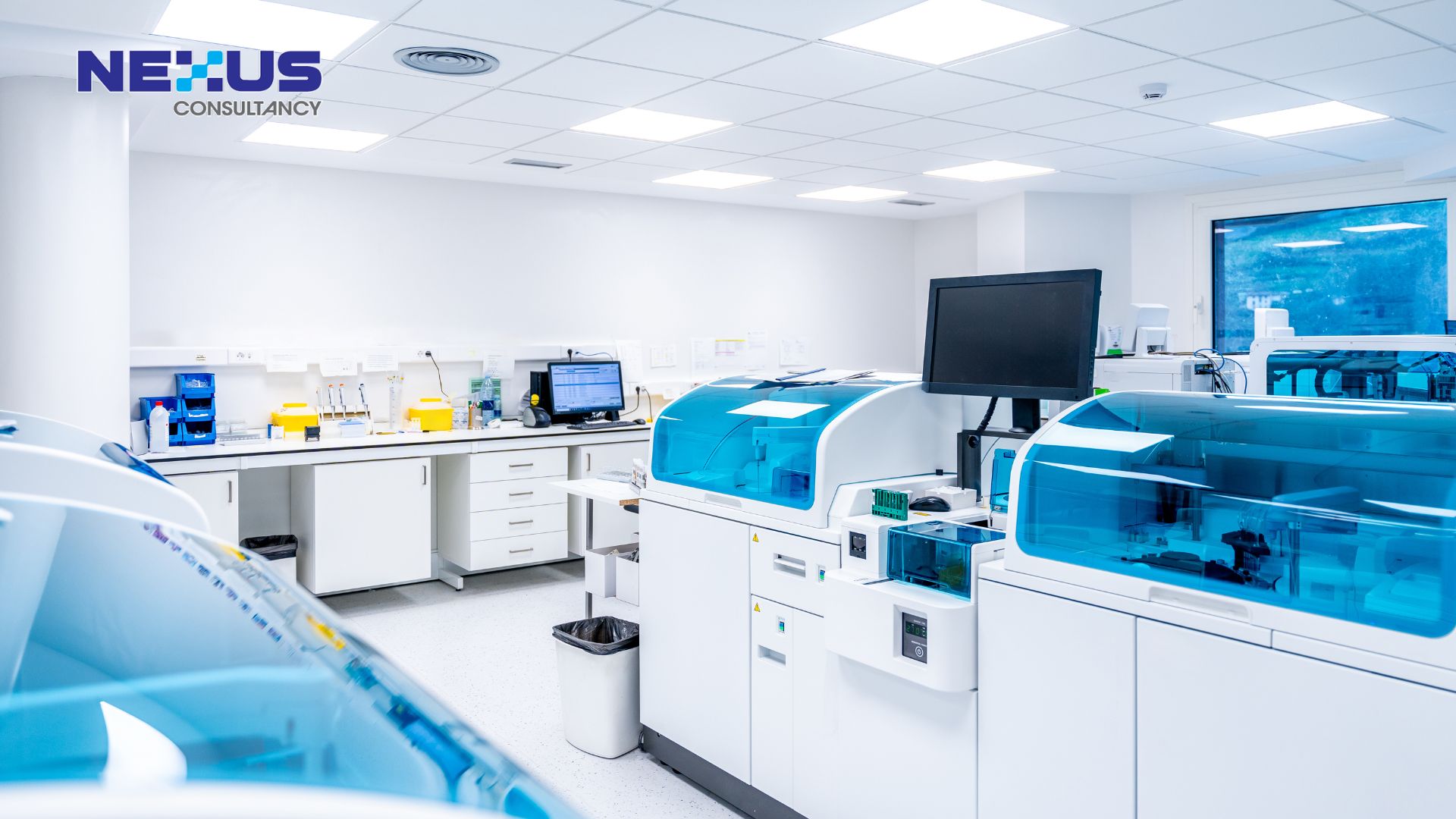
Danielle Tan
Chief Operating Officer
Learn the difference between ISO 22000 and FSSC 22000, and get expert guidance to meet buyer demands, pass audits, and export with confidence.

In today’s competitive and highly regulated food industry, ensuring food safety is not just a legal requirement — it’s a business imperative. Food recalls, customer complaints, or even small lapses in hygiene can damage both your reputation and bottom line.
Among the most recognized food safety management systems (FSMS) globally are ISO 22000 and FSSC 22000. While they are closely related, many food manufacturers and processors struggle to understand the difference and which certification suits their business best.
In this article, we’ll break down the key differences between ISO 22000 and FSSC 22000, explore their benefits, and help you decide which one is right for your organization.
✅ Need help deciding? Talk to an ISO consultant in Malaysia — we support F&B companies across Malaysia with food safety ISO certification, training, and audit readiness.
What Is ISO 22000?
ISO 22000 is an international standard developed by the International Organization for Standardization (ISO). It provides a framework for a food safety management system that applies to all organizations in the food chain — from farm to fork.
ISO 22000 combines the principles of HACCP (Hazard Analysis and Critical Control Points) with risk-based thinking and the Plan-Do-Check-Act (PDCA) cycle. It requires organizations to identify, assess, and control food safety hazards and ensure consistent communication throughout the supply chain.
Key Features of ISO 22000:
• Risk-based FSMS aligned with ISO’s High-Level Structure
• Applicable to all food chain players
• Integrates easily with ISO 9001 (Quality Management Systems)
• Not industry-specific
🎯 Want to implement ISO 22000 with confidence? Our consultants help you build a food safety system that’s compliant, practical, and audit-ready.
👉 Explore ISO Consultancy Services
What Is FSSC 22000?
FSSC 22000 stands for Food Safety System Certification 22000. It is a GFSI-recognized food safety certification scheme based on ISO 22000, but it includes additional requirements that make it more comprehensive and aligned with global market expectations.
FSSC 22000 combines:
• ISO 22000
• ISO/TS 22002-1 (or applicable PRP standard depending on sector)
• FSSC additional requirements, such as food fraud prevention, food defense, and allergen management
Because of these additions, FSSC 22000 certification is often favored by multinational food retailers, major manufacturers, and international buyers looking for GFSI-compliant suppliers.
Key Features of FSSC 22000:
• Fully based on ISO 22000 but includes industry-specific PRPs
• Recognized by GFSI (Global Food Safety Initiative)
• Includes mandatory programs like food fraud mitigation and food defense
• Required or preferred by many global food brands and retailers
We also provide FSSC 22000 training and audit readiness programs to help Malaysian food businesses align faster, build stronger internal systems, and pass audits with confidence.
Trusted by F&B manufacturers, OEM suppliers, and exporters across Malaysia.
🚀 Planning to scale or export your food products?
Get FSSC 22000 support from our experts and fast-track your certification. Contact us now.
ISO 22000 vs FSSC 22000: Key Differences
| Feature | ISO 22000 | FSSC 22000 |
| GFSI-recognized | Not GFSI-recognized | GFSI-recognized |
| Scope | General FSMS standard + PRPs | FSMS + PRPs + additional GFSI requirements |
| Pre-Requisite Programs (PRPs) | Mandatory sector-specific PRP standards | Mandatory sector-specific PRP standards |
| Food Fraud & Defense | Minimum requirements or organization-defined | Mandatory |
| Market Acceptance | Moderate | High (especially in B2B global supply) |
| Audit Type | ISO audit | FSSC audit (including unannounced audits) |
Which One Do You Need?
The right choice depends on your business goals, customer expectations, and market access requirements.
Choose ISO 22000 if:
• You’re a small or medium enterprise starting your FSMS journey
• Your customers do not require GFSI certification
• You want a flexible, globally recognized standard to improve food safety internally
Choose FSSC 22000 if:
• Your buyers require GFSI-recognized certification
• You export food products to international markets
• You supply retailers, MNCs, or branded food chains
• You want a more comprehensive FSMS with enhanced risk management
• You need to address food fraud, food defense, and allergen risks systematically
💬 Still unsure which food safety ISO standard suits your business? Speak to an ISO consultant Malaysia team now for a free consultation.
Why GFSI Recognition Matters
GFSI (Global Food Safety Initiative) benchmarks food safety certification schemes to harmonize global food safety standards. Many global retailers and manufacturers only accept GFSI-recognized certifications like FSSC 22000, BRCGS, SQF, or IFS.
If your business wants to work with international supply chains or grow exports, FSSC 22000 gives you a competitive edge and broader market access.
Transitioning from ISO 22000 to FSSC 22000
Already certified to ISO 22000? Great news — you’re halfway to FSSC 22000. The next step is to:
1. Address FSSC’s additional requirements, including:
• Food fraud prevention
• Food defense
• Management of allergens and services
2. Undergo an FSSC-approved audit by a certified certification body
🧭 Ready to upgrade? Our consultants help Malaysian food manufacturers bridge the gap between ISO 22000 and FSSC 22000 with ease. Start the transition today!

Final Thoughts
Both ISO 22000 and FSSC 22000 support robust food safety systems. However, FSSC 22000 offers a more comprehensive and globally accepted framework, especially for businesses looking to scale or export.
Whether you’re a startup, SME, or large-scale manufacturer, investing in a food safety management system improves product integrity, legal compliance, and customer trust.
Upgrade Your Food Safety System with Confidence
Get expert guidance to close gaps, meet buyer expectations, and prepare for ISO or FSSC certification — without second-guessing. Contact Our ISO Consultants Now!






